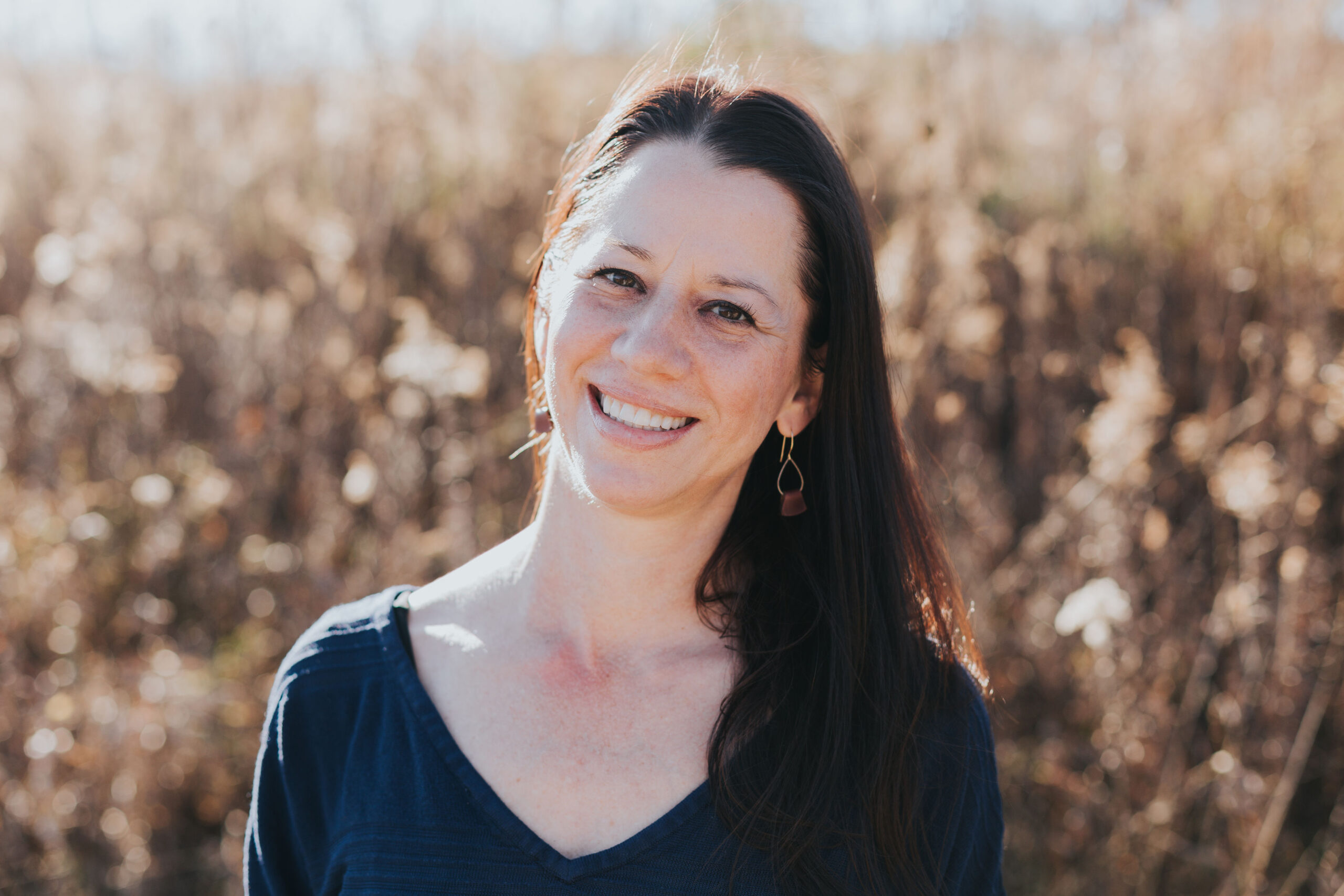Neurological autoimmune conditions – like multiple sclerosis – are notoriously complex, often leaving patients navigating vague symptoms, delayed diagnoses, and fragmented care. In this interview with Dr. LeeAnn Steinfeldt-Manoni, we discuss how functional medicine is reshaping care for neuro-autoimmune conditions by addressing a root cause approach to healing.
 Bio: Dr. LeeAnn attended chiropractic school at National University of Health Sciences in Lombard, IL. Dr. LeeAnn has achieved the highest level of training in the field of Functional Neurology by attaining her Diplomate Degree in Chiropractic Neurology through the American Chiropractic Neurology Board. Her practice focuses on pediatric and adult neurological and autoimmune conditions including post-concussion syndrome, multiple sclerosis, Parkinson’s, autism spectrum disorder, migraines, dizziness, chronic pain, movement disorders, developmental delays, and many more. Her passion is helping people that have been on a long journey in their health. Dr. LeeAnn has a history of Lyme disease, as well as dystonia, which is a neurological movement disorder. She found hope and benefits to her healing journey through alternative medicine. This personal history makes her care compassionate and creative to look at all things that may help assist in healing for patients.
Bio: Dr. LeeAnn attended chiropractic school at National University of Health Sciences in Lombard, IL. Dr. LeeAnn has achieved the highest level of training in the field of Functional Neurology by attaining her Diplomate Degree in Chiropractic Neurology through the American Chiropractic Neurology Board. Her practice focuses on pediatric and adult neurological and autoimmune conditions including post-concussion syndrome, multiple sclerosis, Parkinson’s, autism spectrum disorder, migraines, dizziness, chronic pain, movement disorders, developmental delays, and many more. Her passion is helping people that have been on a long journey in their health. Dr. LeeAnn has a history of Lyme disease, as well as dystonia, which is a neurological movement disorder. She found hope and benefits to her healing journey through alternative medicine. This personal history makes her care compassionate and creative to look at all things that may help assist in healing for patients.
1. Please tell us a little bit about yourself and your background.
I am a mother of two boys and have an amazing husband. My family is the core of my life, and my practice is a beautiful balance to motherhood. I have always been a persistent learner in functional medicine, neurology and spiritual growth. My family enjoys time outdoors hiking/exercising, as well as playing cards and board games. I love to cook and teach others healthy recipes, share time with friends and family, and have big life experiences to live life to its fullest. After healing from a neurological condition that occurred in my late 20’s it propelled me to live a little differently.
I have a chronic history of Lyme disease and had segmental dystonia, a neurological condition. I also suffered a concussion in the past few years which makes my relationship with patients very different given the level of understanding of going through different treatments. These conditions led me down a path of understanding the gaps that exist in healthcare in between Western and Eastern medicine. There was not a place that existed between to help others live better and feel they were in a place with others that were on a journey of hope. After my dystonia resolved with functional neurological applications, as well as functional medicine support, I was driven to create a space for others to find healing and hope. I currently practice with The NeuroBalance Center. It brings me pure joy to see people come to the center and see others on a health journey filled with hope, as they have many resources for autoimmune and neurological conditions.
2. Can you describe your journey from chiropractic school to specializing in this field?
Throughout chiropractic school I was passionate about neurological care based on my neurology instructor that brought the brain to body connection to life. It was pure magic. He taught by explaining his cases and how you can rehab the brain through pathways that are highways that communicate and change the messages. I had the opportunity to learn from an amazing Chiropractic Neurologist. He had a private practice at the student clinic that influenced my career path by watching him treat patients with amazingly quick results. He was brilliant and compassionate with complex conditions. He had the heart of a teacher and the passion of a scientist to learn and grow with all the new brain-based therapies. I continued my education through The Carrick Institute, functional neurological seminars, as well as the Melillo Method, and sat for a specialty board for neurology in my field. I have been able to expand treatment approaches to care with functional medicine training from the Kharrazian Institute, as well as ongoing expansion in brain health every year.
3. How does the functional medicine model reshape your approach to neurological and autoimmune disorders compared to conventional treatment?
It is the foundation of everything I look at. I always look at labs and gut health, along with neurological care and autoimmune conditions, as a patient will not progress if there are metabolic conditions that exist with neurological conditions. I feel it is critical for patients to be treated with both functional medicine and neurological care to get the best outcomes. Neuroplasticity is dependent on fuel and delivery. If blood sugar is dysregulated, inflammation is occurring, thyroid dysfunction exists, or anemia is present, the brain will not message differently with neurological therapy. I will often not begin neurological care until the metabolic factors are addressed. When I assess a patient for their condition, I can often tell that metabolic factors exist based on their testing and fatigability. I think the largest difference compared to conventional medicine is treatment has one option, and that is medicine to change function in the brain. I use physical rehab for the brain, along with functional medicine, to change the way the brain is firing.
4. What are some root causes you commonly investigate when working with patients who have neuro-autoimmune conditions?
I often discover underlying conditions such as: Lyme disease/co-infections, mold infections, leaky gut/SIBO/dysbiosis, anemia/deficiencies, thyroid disorders, PANS/PANDAS, neuro inflammation, food sensitivities, chemical sensitivities, and food additive reactions.
5. How do you approach nutrition planning for patients with neuro-autoimmune conditions? Are there specific dietary patterns you find consistently helpful – such as paleo, ketogenic, or the Mediterranean diet?
I typically test for food sensitivities and take out foods that are reactive, along with taking out top reactive foods such as wheat, dairy, processed sugar, corn, and legumes for some patients. The Autoimmune Protocol diet (AIP) is my typical approach for patients to clean up eating patterns and still support good whole foods that help the brain and body work better. I try and leave in as many foods a patient can tolerate to assist with gut diversity. I do feel Ketogenic can be really beneficial in cognitive conditions, as well as post-concussion. I feel most patients lack enough fat, and that is very helpful to shift patient outcomes with mood, as well as clinical outcomes with brain therapy.
6. Can you tell us about the NeuroBalance Center and their approach to treatment?
The NeuroBalance Center is a not-for-profit that supports adaptive fitness, education, and complementary healthcare to support a patient’s health journey. We have businesses under the roof that provide care such as: Chiropractic Neurology, Functional Medicine, Acupuncture, Physical Therapy, Speech Therapy, Massage Therapy, Personal Training, Occupational Therapy, Counseling, Reiki, Rock Steady Boxing for Parkinsons, and Adaptive Fitness classes. Our hope is to provide many services for those with complex conditions to help them in their progress of finding solutions. We have state-of-the-art equipment to help with walking, balance, strengthening, and vision therapy. We have amazing healthcare providers that have a compassionate process to treating a patient/client to enhance and improve their health.
7. Many functional medicine protocols include targeted supplementation – what are generally some of the most effective supplements you’ve seen for supporting neurological function or calming autoimmune activity?
I use a combination of products for patients depending on the condition. I consistently use gut health products, inflammatory support, and adrenal support to enhance healing in individuals. I also use products that support lymphatic drainage and detox, parasite cleanse products, as well as mold and Lyme support. Concussion care is also very critical. I use high quality omegas and magnesium threonate for brain inflammation.
8. Where can people learn more about your work or connect with you?
I have information on social platforms that include: Instagram, Facebook, and NeuroBalancecenter.org.







Comments (0)